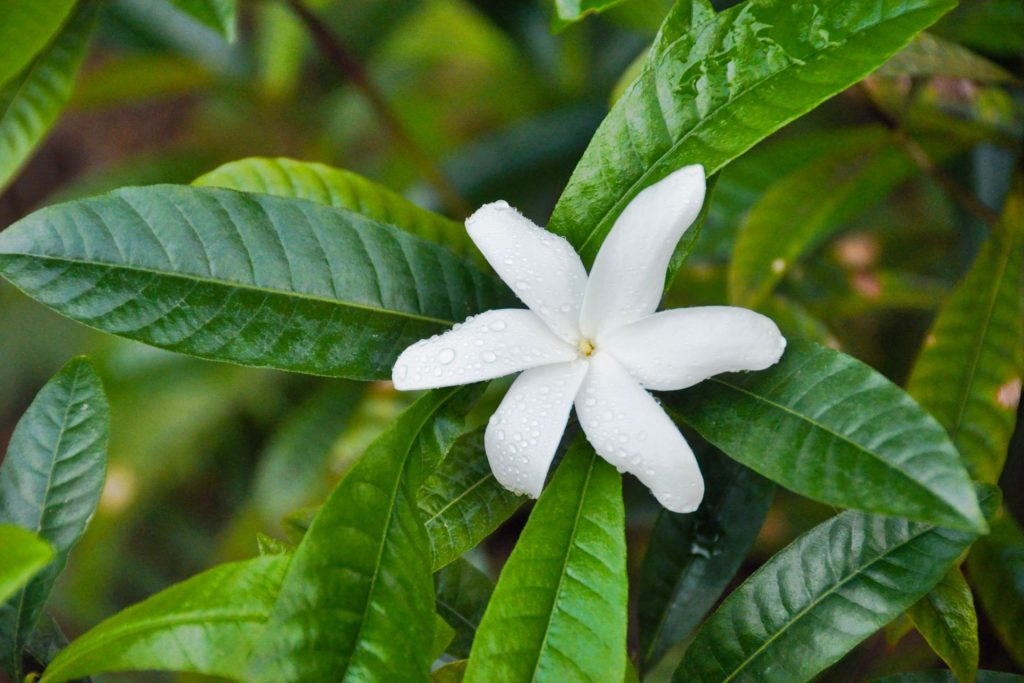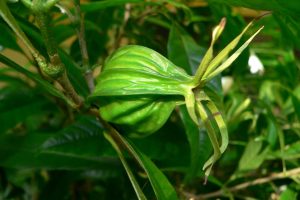Forest Flora – Gardenia actinocarpa
 #ForestFlora – Gardenia actinocarpa is part of the Rubiaceae family. It is a rare and endangered species growing only in a very restricted area in the Daintree, and, it is currently listed as endangered under the Nature Conservation Act 1992 and the Environment Protection and Biodiversity Conservation Act 1999.
#ForestFlora – Gardenia actinocarpa is part of the Rubiaceae family. It is a rare and endangered species growing only in a very restricted area in the Daintree, and, it is currently listed as endangered under the Nature Conservation Act 1992 and the Environment Protection and Biodiversity Conservation Act 1999.
Growing up to 5 m tall, this beautiful shrub can be found in the understory of a small area along the coastal fringe between Cow Bay and Noah Beach, just south of Cape Tribulation. Its total area of habitat is estimated to cover just 206.5 ha (some of which is located within Daintree National Park, while the rest is on private land).
 Gardenia actinocarpa is strictly dioecious – meaning that each individual plant has either male or female reproductive organs. And, because it takes a long time for the ridged fruit to fully develop, it’s not uncommon to witness both flowers and developing fruit on a single plant at the same time.
Gardenia actinocarpa is strictly dioecious – meaning that each individual plant has either male or female reproductive organs. And, because it takes a long time for the ridged fruit to fully develop, it’s not uncommon to witness both flowers and developing fruit on a single plant at the same time.
The flowers are up to 5 cm long, are quite typical for a gardenia, and they have a very sweet smell. The fruits contain several seeds ranging in colour from cream to brown, are 4-6 mm long, and are relatively easy to germinate, however Gardenia actinocarpa loses seed viability very rapidly (<15% viability after 3 months).
Fun Facts
- There are about 180 named species of Gardenia, and all are characterised by the sweet strong smelling perfume produced by white to cream flowers.
- Coffea, the source of coffee, also belongs to the Rubiaceae family.
Information sourced from Wild Wings & Swampy Things and DCCEEW. Imagery courtesy of Allen Sheather.
Want more good Rainforest news in your life?
Subscribe to our eNews | Follow us on Instagram | Like us on Facebook | Subscribe to our YouTube channel
Help Protect Rainforests Forever
Donate to Protect Rainforests Forever | Become a Rainforest Guardian for as little as $2 a month | Partnership Options

